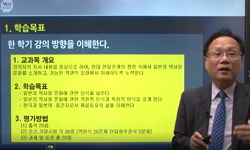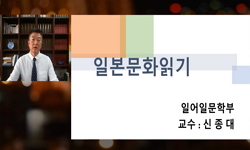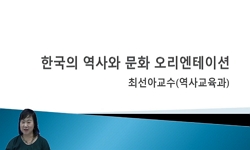세계 굴절과 일본 팔기: 근대일본의 서구문명 도입과 현대일본의 대외원조 리차드 섀넌 본 연구는 현대 일본의 대외원조프로그램의 기원이 일본의 근대문명(기술과 문화) 수용과정에 있다...
http://chineseinput.net/에서 pinyin(병음)방식으로 중국어를 변환할 수 있습니다.
변환된 중국어를 복사하여 사용하시면 됩니다.
- 中文 을 입력하시려면 zhongwen을 입력하시고 space를누르시면됩니다.
- 北京 을 입력하시려면 beijing을 입력하시고 space를 누르시면 됩니다.

Refracting the World, Exporting Japan: Early Modern Japan’s Importation of Western Technological Culture and the Export of Contemporary Japanese Aid
한글로보기https://www.riss.kr/link?id=A60153878
- 저자
- 발행기관
- 학술지명
- 권호사항
-
발행연도
2012
-
작성언어
English
-
주제어
일본 ; 대외원조 ; 세계관 ; 문화 ; 종교 ; 역사 ; 기술 ; 개발 ; 인류학 ; worldview ; 국제관계 ; Japan ; foreign aid policy ; culture ; religion ; history ; technology ; development ; international relations ; anthropology
-
등재정보
KCI등재
-
자료형태
학술저널
-
수록면
509-539(31쪽)
- DOI식별코드
- 제공처
-
0
상세조회 -
0
다운로드
부가정보
국문 초록 (Abstract)
세계 굴절과 일본 팔기: 근대일본의 서구문명 도입과 현대일본의 대외원조 리차드 섀넌 본 연구는 현대 일본의 대외원조프로그램의 기원이 일본의 근대문명(기술과 문화) 수용과정에 있다고 보고 1850년~1895년간 일본의 대외관계를 문명의 관점에서 검토한다. 기술, 개발, 대외관계 및 지도자 인식 등의 측면에서 근대화 경험이 현대 일본의 대외원조정책에 어떻게 기여했는가를 탐구한다. 이를 위해 먼저 일본 개국의 문명론적 맥락을 살피고 세 지도자―후쿠자와 유키치, 카토 히로유키, 모리 아리노리ㅡ의 세계관을 기술, 개발, 세계화의 개념을 통해 분석한다. 특히 대외원조가 가지는 일반적인 함의와 함께 종교와 정신성이 원조정책에 미친 영향에 주안점을 둔다. 서구문명의 도입에 있어 일본이 직면했던 난제는 물질 측면과 정신․윤리적 측면의 균형을 잡는 일이었다. 이 균형의 문제가 현대 일본의 원조정책에 갖는 함의를 일본의 문화적 대외관계의 주요 어젠다의 전개과정을 통해 고찰한다.
다국어 초록 (Multilingual Abstract)
Refracting the World, Exporting Japan: Early Modern Japan’s Importation of Western Technological Culture and the Export of Contemporary Japanese Aid Richard W. Shannon This study examines Japan’s external cultural relations (1850 to 1895) to explo...
Refracting the World, Exporting Japan: Early Modern Japan’s Importation of Western Technological Culture and the Export of Contemporary Japanese Aid Richard W. Shannon This study examines Japan’s external cultural relations (1850 to 1895) to explore possible antecedents of the nation’s contemporary foreign aid program. How have Japan’s experiences with technology, development, and foreign relations in that era, and important leaders’ views, contributed to the nation’s current aid policies? I look at key contexts of Japan’s external cultural relations and relevant worldviews of three leaders (Fukuzawa Yukichi, Kato Hiroyuki, and Mori Arinori) which I then analyze using selected concepts of technology, development, and globalization. In particular, the main question explored here is how spirituality and religion (from 1850 to 1895) may have influenced Japan’s aid policies. I conclude that it was hard for Japan’s governmenttobalance the material and ethical/spiritual aspects of Western knowledge importation. Why did this occur? What are the possible implications for later Japanese aid? In this paper, I explore how this issue and several others related to Japan’s external cultural relations unfolded.
목차 (Table of Contents)
- Ⅰ. Introduction
- Ⅱ. Theoretical Background
- 1. Anthropology and International Studies
- 2. Worldview Issues
- 3. Technology and Development Issues
- Ⅰ. Introduction
- Ⅱ. Theoretical Background
- 1. Anthropology and International Studies
- 2. Worldview Issues
- 3. Technology and Development Issues
- 4. Globalization Issues
- 5. Overview of Japanese Aid
- Ⅲ. Historical Contexts
- Ⅳ. Empirical Analysis
- 1. Leaders’ Worldviews
- 2. Conceptual Analysis of Worldviews
- V. Conclusion
- References
- 논문초록
동일학술지(권/호) 다른 논문
-
Универсальное и национально специфическое в падежной ГРАММАТИКе начального этапа обучения
- 동북아시아문화학회
- 서상범
- 2012
- KCI등재
-
TIMSS를 활용한 수학 학업성취도 영향 구조 관계에 대한 한일 비교연구
- 동북아시아문화학회
- 허균
- 2012
- KCI등재
-
兪鎮午「金講師とT教授」日本語改作本研究 - 行動主義文學と関連して -
- 동북아시아문화학회
- 海老原豊
- 2012
- KCI등재
-
- 동북아시아문화학회
- 박영숙
- 2012
- KCI등재




 KCI
KCI DBpia
DBpia






